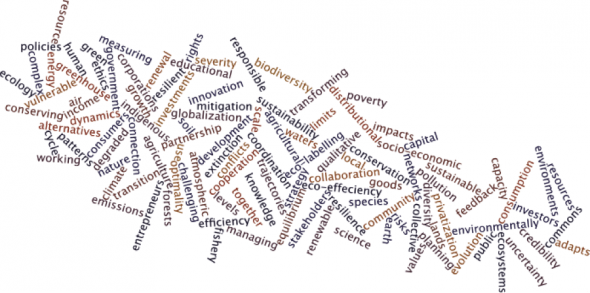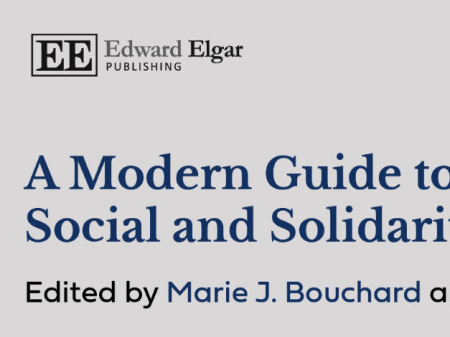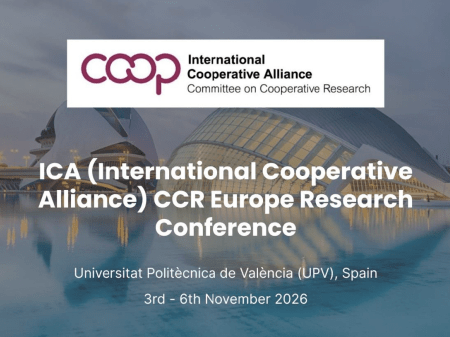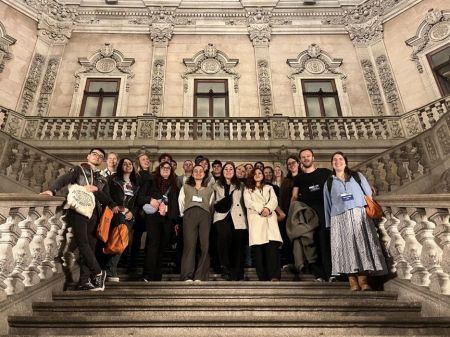We are pleased to share news of a new book relevant to…
Co-operatives have the 'DNA of sustainability'

At a time when the world is facing a series of challenges, co-operatives can position themselves as builders of sustainability, delegates at the International Co-operative Alliance Global Conference heard.
The event, taking place in Cape Town featured a plenary session on sustainability focused on a scan undertaken by the ICA, in collaboration with worker co-operative Sustainability Solution Group.
The scan was aimed at assessing to what extent co-operatives were compatible with the notion of sustainability. The findings suggest there is a clear and direct relationship between sustainability and how co-operatives describe themselves.
Presenting the results of the research, Yuill Herbert of Sustainability Solutions said: "Co-operatives are anti-capitalist, it is inherent to their DNA. My advice to the movement is to keep on going, keep promoting your co-operative difference. Sustainable development is a sweet spot for co-operatives. It's about reframing the agenda, prosperity and solving problems rather than creating problems."
Sustainability Solutions, itself a worker co-op at the forefront of sustainability in Canada, analysed samples of co-operatives from around the world in terms of what they communicate about their activities and whether that represents the principles of sustainability or not. They developed three separate samples. A first sample of 93 co-operatives with an online presence was randomly generated by identifying all of the associations that were members of the ICA.
A second sample of 86 co-operatives perceived as sustainability leaders was collected by identifying co-operatives included in sustainability indexes such as Global Reporting Initiative or Corporate Knights. The final sample consisted of a list of 64 co-operative associations and federations from around the world that had expressed their commitment to sustainability.
Mr Herbert added: "Sustainability is at the heart of our work — we are sustainability geeks. This undertaking presented a number of challenges in defining sustainability. But in doing this we identified the sustainability DNA of co-operatives."
To do this, it extracted key words from the seven co-operative principles and then searched for these keywords in the sustainability literature. This indicated that co-operative principles and sustainability literature overlapped. The concepts occurring most frequently then formed the "DNA of sustainability".
The next step involved using a software to identify how many times terms were used in sustainability literature and separated the literature into social, economic and ecological groups. Sustainability Solutions then assessed the information available through various co-operative websites.
The second part of this process involved asking co-operatives to describe the sustainability projects they are working on, by contributing to www.sustainability.coop. Around 70 examples have been posted so far.
Findings revealed that although the co-operative principles strongly represent the social dimensions of sustainability ‘DNA’, they are weak on environmental and economic dimensions.
The research also revealed that of the co-operative principles, concepts related to principle 5 (education, training, knowledge sharing), principle 6 (co-operation among co-operatives), and principle 7 (sustainable community development) were strongly communicated.
But principles 1, 2, 3 and 4 were not discussed as much. According to Mr Herbert this could be because "these concepts are so deeply part of co-operative that they need not be mentioned".
Mr Herbert also called for co-operatives to contribute to a "living, breathing" database of co-operatives practicing these areas at sustainability.coop. He added: "Our analysis of reports shows these concepts are not merely a public relations exercise. The stories of co-ops at sustainability.coop shows this. But more examples are needed to see if co-operatives are walking the talk."




